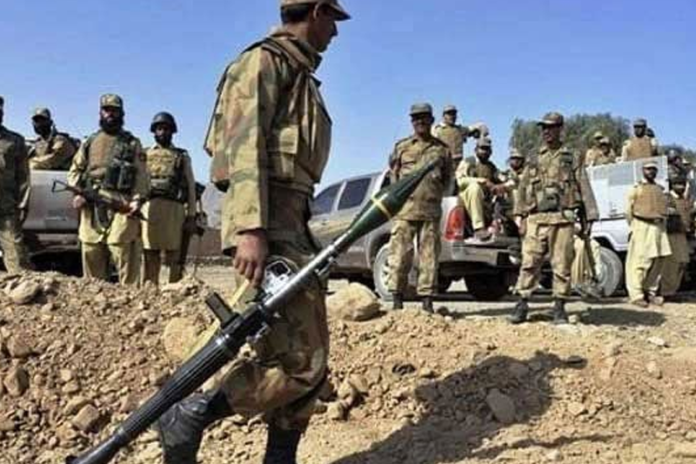The solar energy solutions

- 203
- 0
According to government data, the total number of solar net metering users in the country has reached 283,000 by December 2024, which was 226,440 in October 2024.
In 2021, net metering users were generating 321 MW of electricity, which increased to 3300 MW in October 2024 and 4124 MW in December 2024 and could reach 12000 MW in the coming time. According to the government, 80 percent of net metering users live in 9 major cities of the country, most of whom belong to the rich class, while according to our information, most of the net metering users belong to the middle class, who had installed very expensive solar panels by taking loans and selling jewelry so that they could reduce their electricity bills with solar net metering.
The solar net metering policy was implemented in Pakistan in 2015 and due to the unbearable increase in electricity prices, the trend of installing solar panels in homes and offices to generate electricity for their needs and the number of solar net metering users increased rapidly. WAPDA and K-Electric are charging Rs. 60 per unit including taxes from net metering users during peak hours, after purchasing electricity from net metering users at Rs. 27 per kWh. Due to the purchase of more than 4000 MW of electricity from net metering consumers, the demand for electricity purchased from IPPs decreased, but the government was having to make payments in the form of capacity charges without purchasing electricity from IPPs, which the government passed on to the general consumers by increasing electricity tariffs, which caused an unbearable increase in electricity prices and the government had to bring a new policy for solar net metering consumers, under which now the government will purchase electricity from new net metering consumers at Rs 10 per unit instead of Rs 27 per unit and the period of return on investment has also been increased from 4 years to 10 years, which was approved by the ECC on March 13, 2025.
Some MNAs had objected to the new net metering policy in the National Assembly and had told Energy Minister Owais Leghari that this lack of continuity in government policies is a major obstacle in the way of new investment. Earlier, the government was trying to promote solar energy, but today solar net metering users are being discouraged. The government has announced to increase the need for alternative energy to 50% by 2030, which is clearly contradictory in the context of the amendments in the new solar net metering policy. The Energy Minister assured the MNA that the new policy will be applicable to new net metering users and the new tariff will not be applicable to old net metering users who were granted net metering licenses by NEPRA.
In this regard, the concerned MNA recently met NEPRA Chairman Waseem Akhtar and my friend DG NEPRA Anwar Malik at their office in Islamabad. He explained that the old net metering licenses were given for 7 years, out of which most of the net metering customers are now expiring, so the new net metering tariff will apply to them. As a result of the review and negotiations of contracts with IPPs, the government has saved about Rs 1500 billion, while the total burden of solar net metering customers is only Rs 159 billion. The MNAs had strongly protested against the amendments in the tele-net metering policy in a press conference with Federation of Pakistan Chambers of Commerce President Atif Ikram and UBG Patron-in-Chief SM Tanveer on March 24 in Islamabad and termed it as looting of the hard-earned investment of poor consumers and against the global trend of solar energy. One is happy that Prime Minister Shehbaz Sharif has ordered a review of the policy by stopping the amendments in the tele-metering policy in the recent cabinet meeting. The caretaker government and Army Chief General Asim Munir had hinted in a meeting with businessmen in Karachi that the savings the government will get after reviewing the IPP contracts would be used to reduce electricity tariffs.
It is heartening that the Prime Minister has recently announced a reduction in electricity tariffs for industrial and domestic consumers by about Rs 7.5 per unit, which will bring the electricity tariffs for domestic consumers to Rs 34.37 per unit and the electricity tariffs for industrial consumers to Rs 40.60 (14.5 cents) per unit, while the electricity tariffs in our regional competitors are Rs 26 (8 to 9 cents) per unit. One strongly hopes that the reduction in electricity tariffs for industrial consumers will increase their electricity demand, which will lead to industrial growth and increased exports. Otherwise, due to uncompetitive electricity tariffs, the demand for electricity by industrial consumers will decrease and the government will have to pay fixed charges to those IPPs, who are still collecting capacity charges, which will nullify the government's recent efforts. This year has seen an extraordinary increase in the installation of solar systems at the home level due to the steep rise in electricity prices, partly due to the significant reduction in the cost of solar panels, despite the fact that a large number of consumers have paid the price of batteries.
As a matter of fact, solar energy is a viable option for our energy woes in the wake of unprecedented energy crisis. Time has come to shift to this renewable energy source to combat our energy woes. Efforts are on at Govt and private level in this regard and the recent Govt decisoin to run thousands of tubewell on solar energy in Balochistan is a case in point. Balochistan is the largest province of Pakistan in terms of area and is the most backward in the race of development. Strategic analysts say that development of Pakistan is not possible without the development of Balochistan. The release of a historic package for farmers in the province last year, the plan to convert 28,000 tubewells to solar systems is a reflection of his vision. As per deatils, 28 thousand of the province tubewells will be converted to solar power in three months. It will cost 55 billion rupees, in which 70 percent will be paid by the federal government and 30 percent by the provincial government. 1 million tubewells run on oil across the country, whose import bill is three and a half billion dollars. In the next phase, they will be transferred to the solar system. Solarization of tubewells will benefit 80 thousand farmers of Balochistan.

















































